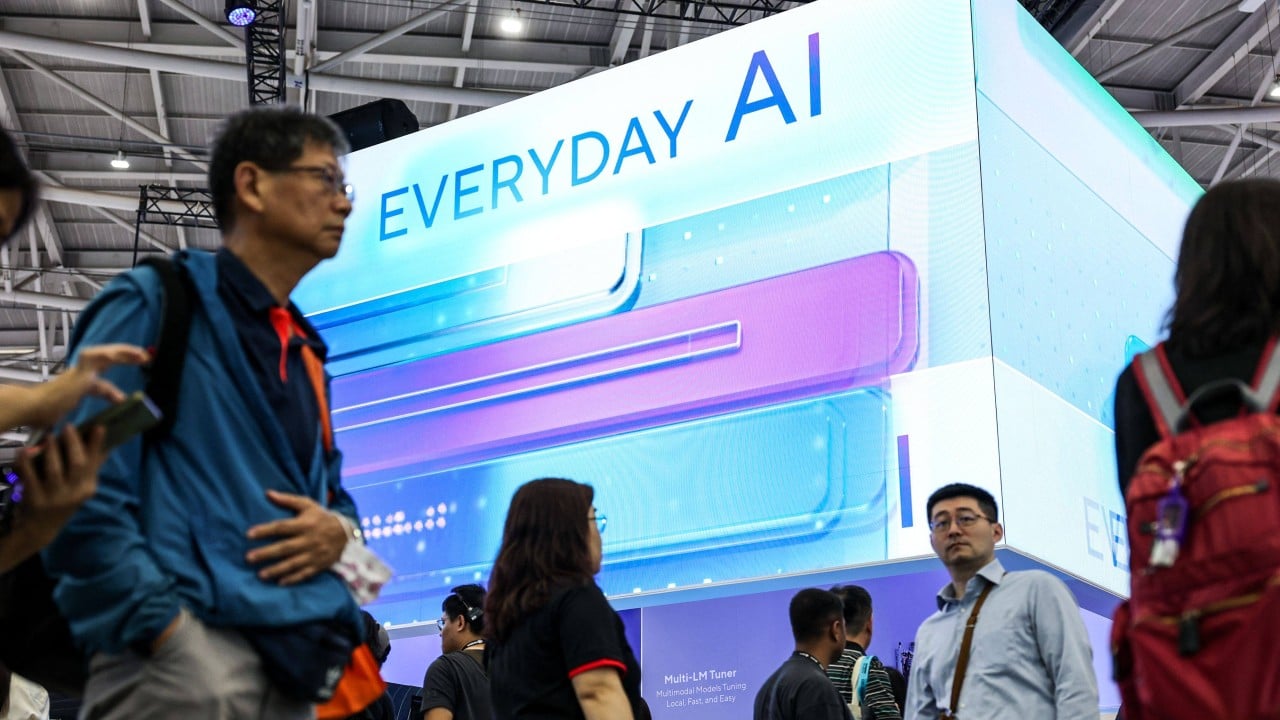There was an elephant in the showroom at this year’s Computex Taipei tech expo.
Advertisement
Loud speakers boomed the guttural sounds of action games loud enough to be heard across dozens of booths, where blazing white lights glinted off the thin black edges of new microprocessors on display. Some of the show’s 86,521 prospective buyers tried out AI-enabled laptops with 3D displays – visible without special glasses – screening a country lane in Japan one moment, a complicated colon surgery the next.
And graphics card developer Nvidia’s CEO, Jensen Huang, talked big about building a “supercomputer” for start-ups in Taiwan, where the show took place.
But the scene differed little from Computex 2024, held 18 months after OpenAI’s game-changing release of ChatGPT.
By June last year, that window had given developers enough time to release foundational hardware, such as AI computing chips and accelerators for cloud servers – a boost to Taiwan’s economic growth, including an unexpectedly fast 5.37 per cent year-on-year uptick in the first quarter of 2025.
Advertisement
Instead, this year’s show rolled out incremental improvements, such as mouse clicks that activate AI software and microphones that allow users to issue commands. Huang did not hit the exhibition floor this year to sign autographs, unlike in 2024 when wave after wave of show-goers queued at the larger booths to sample AI-powered laptops.
But in the grand scheme of things, that was just a bug. Now, the elephant.

